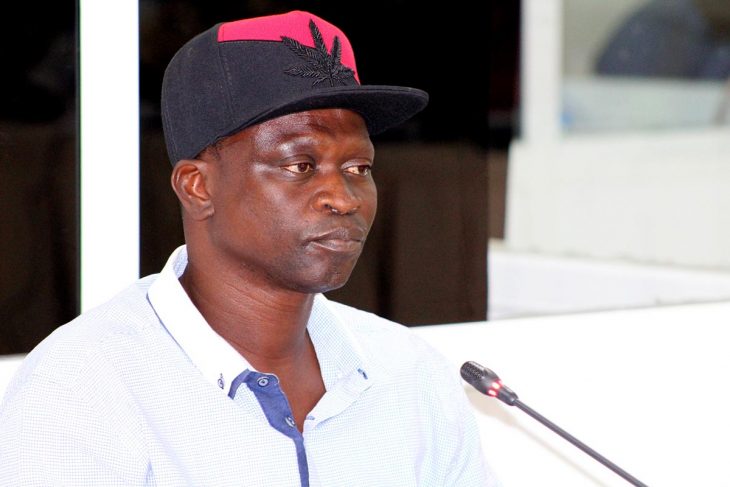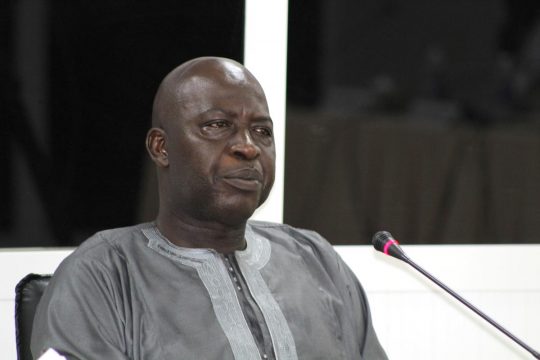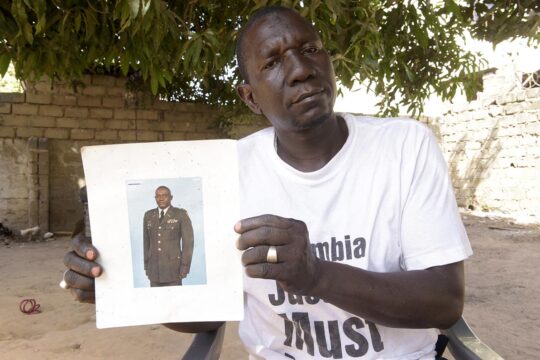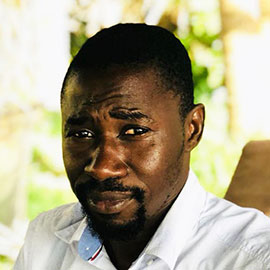Eleven years ago, Sergeant Lamin Karbou was working at the Banjul International Airport as an anti-narcotic officer. His command center was in Brikama, a provincial town of West Coast region, about one hour drive from Banjul. Karbou was an agent of the Drug Law Enforcement Agency of the Gambia (DLEAG), an anti-narcotic agency. He had joined the DLEAG in 2008. Barely a year later, in May 2009, him and his colleague Lamin Sima were informed by their commanding officer Nfally Dambeleh to go to Kembujeh, a settlement about 15-minute drive from Brikama.
The two agents were to follow a cocaine transaction involving some unknown individuals. They were left in the dark as to the source of the tipoff. They followed the trail, and the information turned up to be accurate. Not known to them though was that this operation involved agents of Gambia’s National Intelligence Agency (NIA). “NIA at the time was the most feared security institution in this country,” said Karbou.
But that did not stop him and his colleague from intervening. At the scene, Karbou said they found two vehicles, including a taxi. Among the NIA officers he recognized were Lamin Darboe, Omar Jammeh, Mustapha Ceesay, Dembo Mbaye, Lamin Hydara, Modou Jarju alias “Rambo”, who was also a member of the Junglers, a paramilitary hit squad under president Yahya Jammeh. One of the NIA officers, said Karbou, fired a pistol in the air. Another hit Lamin Sima, who was approaching, on his chest and demanded that they backed off. “They said it was a NIA operation,” testified Karbou before Gambia’s Truth, Reconciliation and Reparations Commission (TRRC) last week. In his view, this couldn’t be: the NIA had no mandate in drug-related matters. “They were there for their pockets,” concluded Karbou.
Cover-up
Karbou and Sima could not make any arrest. However, now that two anti-narcotic officers knew about the operation the NIA agents arrested two people at the scene, Tijan Ndure and Karamo Drammeh, and a third one, Ansumana Fatty, later on and handed them to the Brikama police station. For Karbou, that was a cover-up. He was convinced that the NIA was involved in the drug trade. His boss Dambeleh called an anti-narcotic chief, Bun Sanneh, to inform him of what happened. Sanneh called the director of the NIA Bo Badgie. However, Badgie claimed no knowledge of the NIA presence at the scene. A bag full of money was kept by the NIA and never returned.
The NIA then began a sham investigation requiring Karbou to write a statement and lie about the incident. He refused. The agency was not used to being defied – especially under Jammeh. Karbou said both Jim Ebrimah Drammeh, a NIA operative, and Alagie Edrisa Jobe, a.k.a. Alagie Morr, a director of operations at the same agency, had engineered the whole operation. He claimed that both men were involved in dealing drugs with some nationals from Guinea Bissau. And now they tried to intimidate him to change his mind. “Jim told me that his men [at the NIA] in their statement said they conducted arrests and some of the suspects escaped. I told Jim that I didn’t witness that and did not see anyone running away because no one ran at the arresting ground,” Karbou recalled.
Torture, illegal detention and fruitless prosecution
That was not the answer the NIA wanted. Karbou was taken to Alagie Morr whom, he alleged, supervised his torture. “When I entered the room, I was grabbed by men. Alagie asked me whether I will comply with them and change my statement but I told him I won’t. Alagie Morr tore my trousers with a scissors. They forced me on my knees while I was in cuffs. Alagie Morr connected an electric wire. He was the first to start beating me and the others joined. I got bruises all over my body,” said Karbou. After his alleged torture, Karbou would endure four weeks of illegal detention at the NIA.
Karbou and Sima were later taken to court on charges of conspiracy, possession of drugs for the purposes of trafficking, among others. “From 2009 to 2011 there was no single witness in our case,” said Karbou. After several warnings by the court to the prosecution for lack of evidence, the case was finally withdrawn and the two accused discharged. While in detention, Karbou lost his daughter to malaria. He still lives with the pain of his cruel treatment.
Karbou attempted to get compensation for the treatment meted at him but it was unsuccessful. In 2012 he filed a case against his torturers and presented his medical papers and photos of his body. (Karbou, who is now 50 years old, shared with the Commission a photo of him showing bruises all over his body that he took three months after the event.) He said the judge only warned and let go Alagie Morr and Jim Drammeh after the then Secretary General and Head of civil service Dr Njogu Bah had intervened and asked the court not to jail the two NIA officials. After Morr and Drammeh were discharged they were transferred from the NIA to the DLEAG.
Alleged perpetrators still in office
And here was more trouble for Karbou: today, Jim Drammeh is his boss, serving as director of operations at the anti-narcotic agency.
Karbou doesn’t seem to appreciate. “Seeing [Drammeh] reminds me of what he did to me eleven years ago,” he said. According to him, some of his other tormentors are also still serving in the system. Sheriff Ceesay, Lamin Darboe and Omar Jammeh are said to be working at the NIA. (Alagie Morr lives in the United States.) According to Karbou, one of the people who constituted the sham panel that interviewed him during his illegal detention was Ousman Sowe. Sowe, a former director of operations of the NIA, is now the director general of the institution.
After the regime change in January 2017, the government renamed the institution State Intelligence Services but, according to critics, the operational systems and agents remain the same. The same criticism is made against the military. Last year, before the TRRC, Lt Babucarr Sanyang complained that his former torturer, General Alagie Martin, is now his direct boss at the army headquarters. Sanyang was accused of involvement in an alleged coup and arrested in 2006. He was beaten by a team of junior soldiers supervised by General Martin, a charge General Martin himself admitted before the Commission.
And so behind Karbou and Sanyang’s testimonies lies the sensitive issue of the need for a vetting process in the security sector in post-Jammeh’s Gambia.
ISLAMIC COUNCIL DENIES ABETTING THE DICTATORSHIP
In the past weeks, the Truth, Reconciliation and Reparations Commission in the Gambia has heard several testimonies that questioned the role of the Supreme Islamic Council in the repression against other religious minorities under Yahya Jammeh’s rule. Under Jammeh, the Council had much influence. It was said that Jammeh needed the Council to control the 90% Muslim population, and the Council’s members needed Jammeh’s protection to strengthen their control over the society.
Two influential members of the Council, Abdoulie Fatty and Momodou Lamin Touray, came before the TRRC to deny that they had any hand in Jammeh’s activities, including the arrest of religious leaders. Fatty is the secretary general of the Council while Touray is its president. One of their accusers was Abass Muhideen Hydara, the son of Sheikh Muhideen Hydara who was illegally arrested. Abass Hydara blamed the Council for his father’s arrest and humiliation. “Imam Abdoulie Fatty told my father that he was the one who ordered his arrest,” testified Abass. Fatty responded that he indeed told the police that they had ordered for Muhideen’s arrest so that it would be easier to get him out of custody than if they said it was the president’s order…
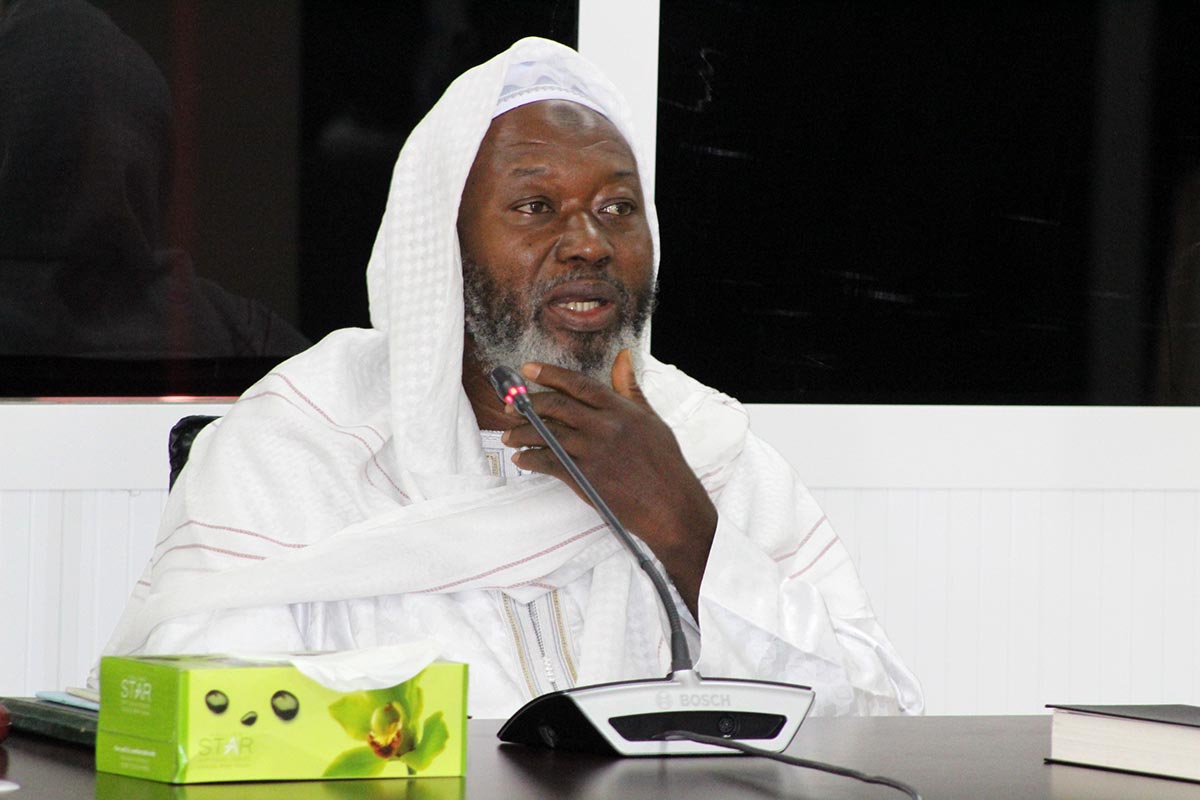
Another cleric who charged the Council was Imam Ba Kawsu, a fearless critic of both Jammeh and the Council, who was arrested several times by state agents, and tortured. Before the TRRC Imam Kwasu blamed the Supreme Council for his arrest. The two leaders of the Supreme Islamic Council, however, said the order to ban Imam Kawsu came from the Presidency. They denied involvement in his arrest and torture. “I deny all accusations against me,” said Imam Fatty.


